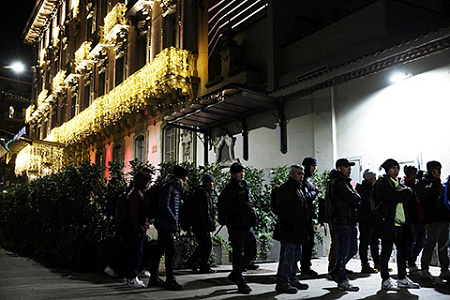
A new report from the Catholic charity Caritas Italiana paints a grim picture of Italy’s socio-economic landscape, describing poverty as an “open wound” on the nation. The findings, amplified by opposition leader and former Prime Minister Matteo Renzi, reveal a dramatic surge in hardship over the past decade. The number of families living in absolute poverty has skyrocketed by over 62%, a figure that underscores a deepening national crisis in one of the world’s major economies.
According to the report, which synthesizes data from over 3,000 service centers, nearly 278,000 people sought aid from Caritas in 2024, a 62.7% increase from 2014. The issue is not confined to the historically poorer south; Italy’s more prosperous northern regions have witnessed an even sharper 77% rise in individuals needing support. Data from the national statistics institute, Istat, corroborates the severity of the situation, indicating that nearly one in ten residents—almost 5.7 million people in 2.2 million households—lack the resources for basic necessities like food, housing, and medical care.
A particularly alarming trend is the rise of the “working poor.” While the unemployed still constitute the largest group seeking help, a staggering 23.5% of aid recipients are employed. This phenomenon is especially pronounced among those aged 35-54, where over 30% of individuals seeking assistance have a job. In Italy today, employment is no longer an effective shield against poverty, with estimates suggesting that 16.5% of all workers are on the brink of destitution, and nearly one-third of the workforce struggles to make ends meet.
This crisis is fueled by a perfect storm of economic pressures. Between 2008 and 2024, the purchasing power of Italians fell by 8.7%, the worst decline among all G20 nations. Despite a recent easing of inflation, the cost of essentials remains crippling for many families, with significant price hikes in energy, food, and education. Compounding the issue is a severe housing crisis, affecting a third of those seeking Caritas’s help. Problems range from unaffordable rent and utility bills to outright homelessness.
The human cost extends to public health, with an estimated 6 million people, or nearly 10% of the population, forgoing necessary medical care due to prohibitive costs or long waiting lists. The social fabric is fraying, with families bearing the brunt of the crisis; over 63% of those seeking aid are part of households with dependent children. The data reveals poverty affects a wide cross-section of society, including both native Italians (42.1% of aid seekers) and long-term foreign residents (56.2%). Furthermore, the number of elderly citizens over 65 needing assistance has doubled since 2015, highlighting a growing vulnerability among pensioners.
Ultimately, Italy ranks as the seventh country in the European Union for the proportion of its population at risk of poverty or social exclusion, a figure that reached 23% last year. The Caritas report serves as a stark warning: for a growing number of people in this G7 nation, a steady job is no longer enough to secure a life of dignity, signaling a profound and troubling shift in the country’s economic and social structure.
